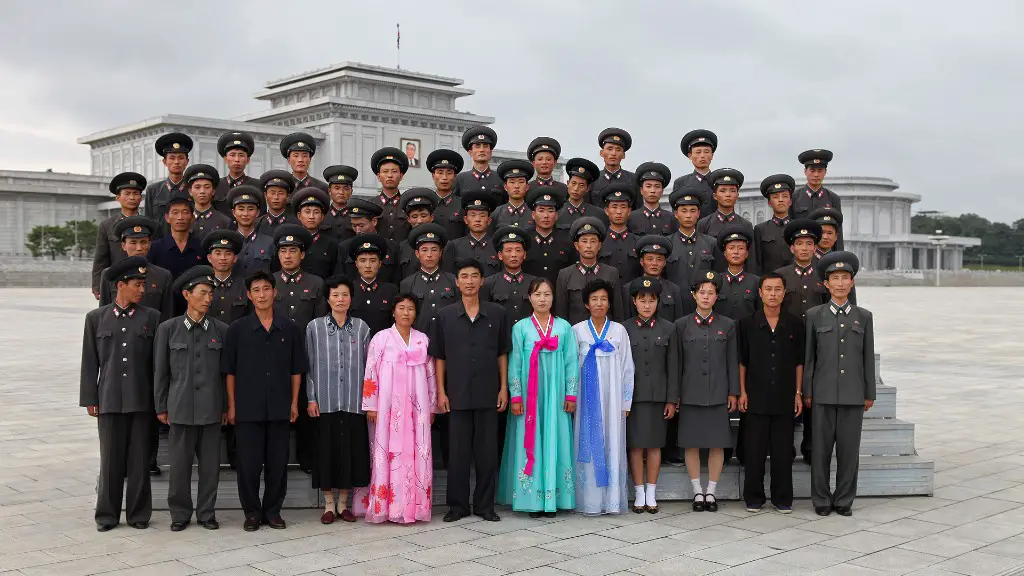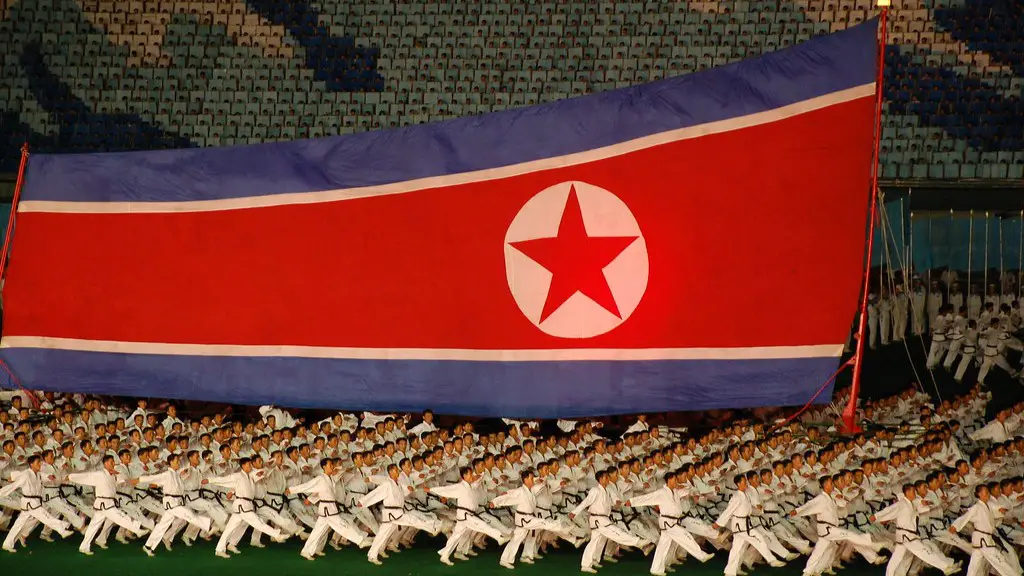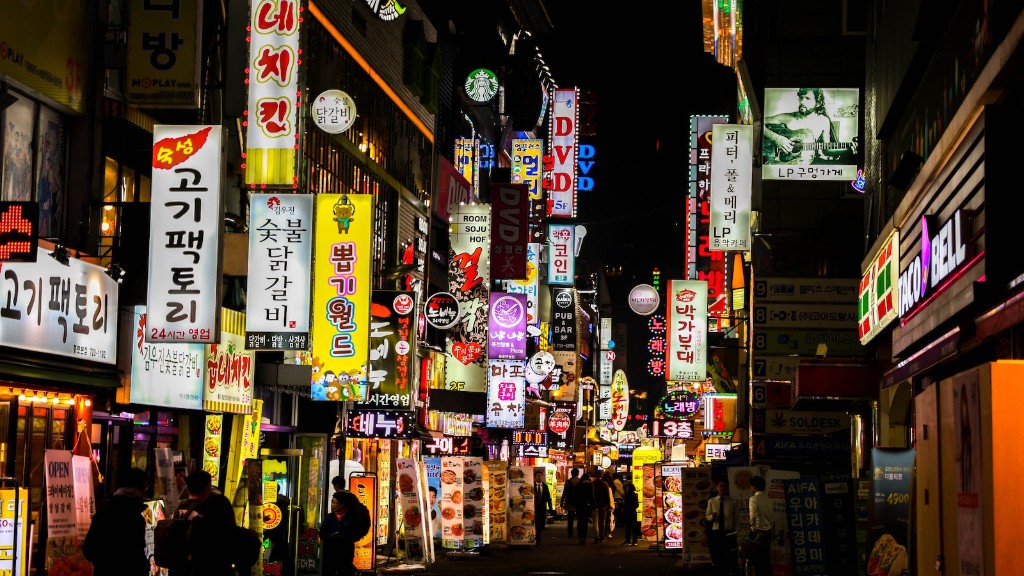North Korea is subject to a number of international sanctions as a result of its nuclear and missile programs. These sanctions have been imposed by the United Nations Security Council, the European Union, and individual countries. The sanctions have significantly reduced North Korea’s access to international trade and have caused economic hardships for the country.
The sanctions against North Korea are mainly economic and diplomatic. The U.S. and the UN Security Council have imposed sanctions after North Korea’s nuclear and missile tests. These sanctions aim to stop the flow of money and materials that could be used for these programs. The sanctions also ban exports of luxury goods to North Korea and prevent North Korean ships from docking at ports around the world.
Why North Korea is in sanctions list?
The UNSC unanimously adopted Resolution 1718, which imposed sanctions on the DPRK in response to its nuclear test on 9 October 2006. The resolution imposed a range of sanctions, including an arms embargo, a ban on the export of luxury goods, and restrictions on the export of certain types of equipment and technology. The resolution also called for the imposition of financial and travel restrictions on individuals and entities involved in the DPRK’s nuclear program.
Economic sanctions are a powerful tool that can be used to influence the behavior of another country. They are often used as a coercive measure to achieve particular policy goals related to trade or for humanitarian violations. Economic sanctions can be very effective in altering the behavior of the target country, but they can also have negative unintended consequences.
Can the US sanction North Korea
The US Department of the Treasury’s Office of Foreign Assets Control has imposed sanctions on five North Korean officials who are accused of procuring goods for the DPRK’s weapons of mass destruction (WMD) and ballistic missile-related programs. The sanctions were imposed on 12 January 2022 and target the officials’ assets and prohibit them from engaging in financial transactions with US citizens.
The United States has had a long history of sanctions against Syria and Venezuela. In 1986, the US imposed sanctions against Syria in response to its support for terrorist groups. These sanctions have been in place for over three decades and have been increased over time. In 2019, the US imposed sanctions against Venezuela in response to the Venezuelan government’s human rights abuses and economic mismanagement. These sanctions have also been increased over time. In 2020, the US imposed sanctions against Russia in response to its aggression towards Ukraine.
What are the 4 types of sanctions?
There are a variety of reasons why sanctions may be imposed on a country, organization, or individual. Some of the more common reasons include:
1. To compel compliance with international law or agreements
2. To punish a country for violating international law or agreements
3. To discourage support for terrorist organizations
4. To prevent the proliferation of weapons of mass destruction
5. To pressure a country to change its policies or behavior
6. To impose costs on a country in order to influence its behavior
7. To protect the citizens of another country
8. To respond to human rights violations
9. To promote democracy or other political reforms
10. To punish a country for aggression or other hostile actions
11. To isolate a country in order to diminish its influence or power
In recent months, the United States of America has taken a number of actions that have displeased other countries around the world. In retaliation, multiple countries have imposed economic sanctions on the United States. These sanctions have had a negative impact on the American economy, and have caused many Americans to suffer.
Can the US sanction China?
The US government has accused the Chinese government and its ruling Chinese Communist Party (CCP) of aiding in human rights abuses, and has imposed sanctions against certain institutions and key members of the CCP, as well as companies linked to the People’s Liberation Army (PLA). These sanctions are intended to pressure the Chinese government to change its policies and practices regarding human rights.
The United States Department of State has issued a travel warning to its citizens, advising them to avoid North Korea due to the risk of arrest and long-term detention. The department also advises that those who do travel to North Korea exercise increased caution, due to the possibility of wrongful detention. This warning comes after the recent detainment of an American citizen in North Korea.
Does U.S. give foreign aid to North Korea
The United States used to provide food and other emergency aid to the DPRK during times of famine and natural disasters, but that is no longer the case. The United States does not currently provide any aid to the DPRK government.
The North Koreans have been testing ballistic missiles that could potentially reach the US island of Guam in the Pacific. These missiles have a range of 8,000km, but some studies suggest they could travel as far as 10,000km. This would put New York within range of these missiles.
What countries is the US not allowed to do business with?
The Bureau of Industry and Security (BIS) is responsible for implementing U.S. government sanctions against Cuba, Iran, North Korea, and Syria pursuant to the Export Administration Regulations (EAR). These sanctions are designed to pressure the governments of these countries to change their policies and practices in areas of concern to the United States, such as human rights abuses, nuclear proliferation, and support for terrorism.
Sanctions against Russia have been ratcheted up in recent years in response to the country’s aggression in Ukraine and other activities. As a result, Russian oligarchs and financial institutions have been forced to divest from long-held assets outside Russia. Moreover, sanctions have prompted banks in several countries to curtail ties with the Russian financial sector. This has made it difficult for Russian businesses to obtain financing and has put a strain on the country’s economy.
Which country has sanctions Russia
International sanctions against Russia were first imposed in March 2014 by the United States and the European Union following the Russian annexation of Crimea. More sanctions were imposed in April and May by the United States, Canada, the European Union, and international organisations such as the United Nations. The sanctions have been expanded several times since then.
The sanctions have had a significant impact on the Russian economy, including reducing investment, depressing oil prices, and causing a decline in the value of the ruble. The ruble has lost more than half its value against the US dollar since the start of 2014.
The sanctions have also caused considerable hardship for the people of Crimea, who have been cut off from much of the outside world and have seen their standard of living decline sharply.
One of the most common measures used to enforce sanctions is the economic or commercial embargoes. An embargo is an official ban on trade with a particular country. In most cases, embargoes are imposed in an attempt to force a change in the political or military policy of the target country.
Another common method of enforcing sanctions is to freeze the assets of individuals or entities within the target country. This prevents them from using their assets to finance activities that are in violation of the sanctions.
Individual sanctions are also sometimes imposed. These can include things like banning an individual from entering a particular country or freezing their assets.
What does it mean to sanction someone?
Sanctions are a strong action taken in order to make people obey a law or rule, or a punishment given when they do not obey. Without realistic sanctions, some teachers have difficulty keeping order in the classroom.
Probation allows an offender to serve their sentence in the community, rather than in jail or prison. This is the most frequently used criminal sanction, as it is often seen as a more rehabilitative option than incarceration. Probation can help an offender to find and keep a job, to stay connected to their family and community, and to receive treatment for underlying problems like substance abuse.
Conclusion
The sanctions against North Korea are designed to force the country to change its policies and actions, in particular its nuclear program. They include bans on exports of certain goods and technologies, imports, and financial transactions. The sanctions also prohibit North Korea from participating in certain international organizations and activities.
The sanctions on North Korea are very severe. The country is not allowed to trade with any other country in the world. They are also not allowed to develop nuclear weapons.





